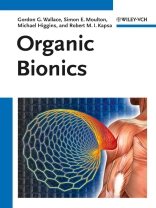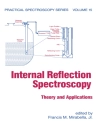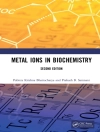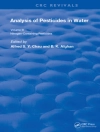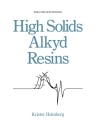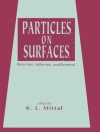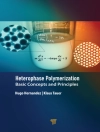The first reference on this emerging interdisciplinary research area at the interface between materials science and biomedicine is written
by pioneers in the field, who address the requirements, current status and future challenges. Focusing on inherently conducting polymers,
carbon nanotubes and graphene, they adopt a systematic approach, covering all relevant aspects and concepts: synthesis and fabrication,
properties, introduction of biological function, components of bionic devices and materials requirements. Established bionic devices, such as
the bionic ear are examined, as are emerging areas of application, including use of organic bionic materials as conduits for bone re-growth,
spinal cord injury repair and muscle regeneration. The whole is rounded off with a look at future prospects in sustainable energy generation and storage.
Invaluable reading for materials scientists, polymer chemists, electrotechnicians, chemists, biologists, and bioengineers.
Innehållsförteckning
MEDICAL BIONICS
Medical Bionics Devices
Key Elements of a Medical Bionic Device
CARBON
Introduction to Carbon
Graphene
Carbon Nanotubes
Summary
ORGANIC CONDUCTING POLYMERS
Polypyrrole
Polythiophenes
Polyanilines
Properties of OCPs
Chemical-Biological Properties
Mechanical Properties
Surface Morpholgy
Conclusions
ORGANIC CONDUCTORS –
BIOLOGICAL APPLICATIONS
Carbon Structures for Medical Bionics
Carbon Nanotubes
Graphene
Conducting Polymers
Toxicity
Sterilization
MATERIALS PROCESSING/DEVICE FABRICATION
Introduction
Conducting Polymers
Carbon Nanotubes
Graphene
Composites with Conventional Polymers – a Medical Focus
3-D Structured Materials and Device Fabrication
ORGANIC BIONICS –
WHERE ARE WE? WHERE DO WE GO NOW?
Materials Design and Selection
Materials Synthesis and Processing
Flexible and Printable Electronics
Characterization
Om författaren
Gordon G. Wallace is Executive Research Director of the ARC Centre of Excellence for Electromaterials Science, an Australian Laureate Fellow and previously an ARC Federation Fellow. He is a Fellow of the Australian Academy of Science and the Australian Academy of
Technological Sciences and Engineering. Professor Wallace`s research interests include organic conductors, nanomaterials and electrochemical probe methods of analysis, and the use of these in the development of Intelligent Polymer Systems.
Simon E. Moulton received his Ph D degree in chemistry from the University of Wollongong, Australia in 2002. He is currently an ARC QEII Fellow at the Intelligent Polymer Research Institute (IPRI), ARC Centre of Excellence for Electromaterials Science (ACES) at the University
of Wollongong. His research interests include the development of conducting biomaterials comprising of organic conducting polymers, carbon nanotubes and degradable polymers and using these to influence cellular responses in systems such as nerve and muscle as well as their use in controlled release of therapeutic drugs.
Robert Kapsa (Ph D-1996, The University of Melbourne) is a Molecular and Stem Cell Biologist whose research has focused on the development of genetic and cell-based therapies for Neuromuscular Disorders such as the Muscular Dystrophies and Motor Neuron Diseases. More recently, he has worked with Gordon Wallace and Graeme Clark in heading the Australian Research Council (ARC) Centre of Excellence for Electromaterials Science Bionics Platform in developing regenerative Bionics implants by which to repair damaged and diseased muscle and nerve. Currently, his research focus is on the mechanisms by which electrical stimulation and the specific molecular chemistry of materials elicits changes within the molecular biology, structure and function of nerve and muscle (excitable) cells.
Michael J. Higgins completed his Ph D degree in Biology and Chemistry at the University of Melbourne, Australia in 2003. He was a research fellow at the Centre for Research on Adaptive Nanodevices and Nanostructures (CRANN), Trinity College Dublin, Ireland in 2003 – 2007.
Dr. Higgins is currently an ARC Australian Research Fellow at the Intelligent Polymer Research Institute (IPRI), ARC Centre of Excellence for
Electromaterials Science (ACES), University of Wollongong, Australia. His research interest is the cellular-material interface and application of scanning probe microscopy techniques to study biological systems at the nanoscale.
